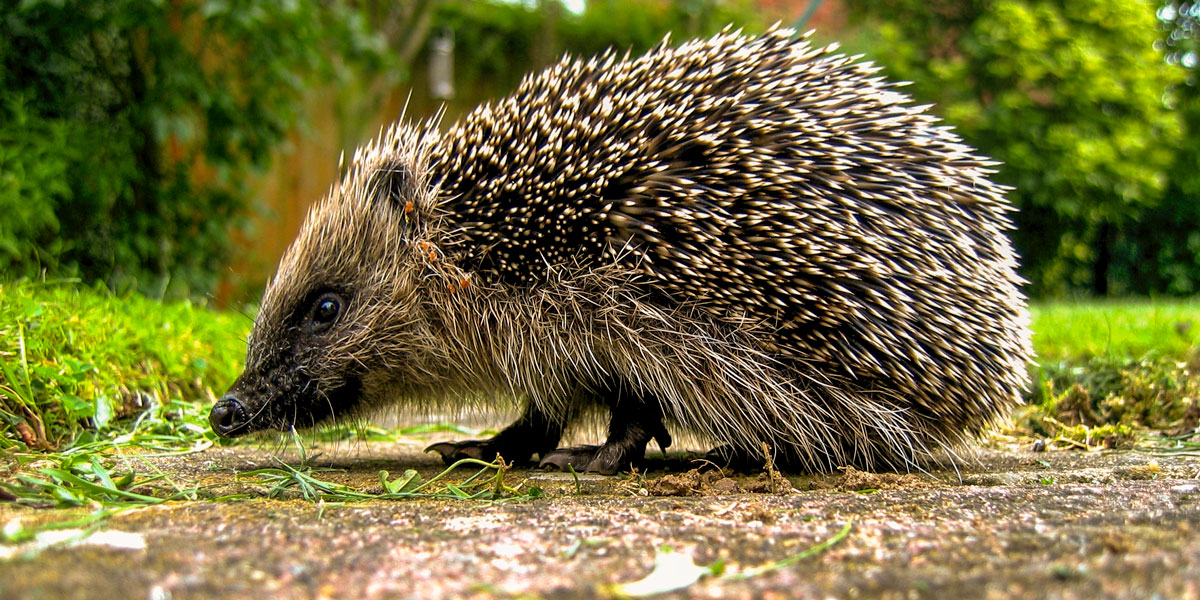
You never hear anyone say "You know what I hate. Hedgehogs". Its never happened, everyone likes hedgehogs. Thats because they've never lived with hedgehogs. The wild common European hedgehog (Erinaceus europaeus) is the most flea infested, tick covered, stinking little creature you'll ever meet. Most get lung worms and get horrible coughs and their feces is the most offensive smelling substance I've ever encountered. But they're charming, happy little creatures who trundle about in the undergrowth making hilarious rutting sounds as they woo, eating worms, snails, fruit, anything they find). And their numbers are in serious decline here in the UK - look after your hedgehogs, leave them water out, put a port in your garden wall for them, give them a messy corner to snuffle and hunt in.
Hedgehog, Giant
by Cab Davidson
| Stat | Hedgehog, Giant |
| AC: | 4 |
| HD: | 7* |
| Move: | 120’(40’) |
| Attacks: | 1 bite |
| Damage: | 1d8 |
| Number Appearing: | 1d2 (1d6) |
| Save As: | Fighter 3 |
| Morale: | 7 |
| Treasure Type: | U |
| Intelligence: | 1 |
| Alignment: | Neutral |
| XP Value: | 1025 |
Giant hedgehogs are creatures of the deep ditches and dark woods, being around 8’-12’ long and 5’ to 7’ high at the bulge of the back, they are foul smelling omnivores that eat meat, carrion, large insects, birds eggs, roots, almost anything they can get their teeth in to. They are coated with spines in the same way that their normal sized kin are, which makes attacking them a rather fraught affair. Anyone in melee combat with a giant hedgehog wielding a weapon shorter than a pole arm is at risk of being struck by these spines when the hedgehog attacks – when the hedgehog moves, all melee opponents must make a saving throw vs. dragon breath or be struck by 1d4 spines, each inflicting 1d4 damage.
If seriously threatened they may roll into a ball. Then, any attacker using a non-pole weapon cannot avoid being impaled on 1d4 spines per round. If the hedgehog is attacked with longer weapons it will attempt to run away rather than remain to be stabbed to death. If threatened they rarely choose to stay and fight, and will usually seek prey elsewhere.
They are neither territorial nor gregarious, but will frequently be found in small groups out of preference for feeding site. At such sites it is possible to find the remains of previous prey, and any treasures carried thereby.